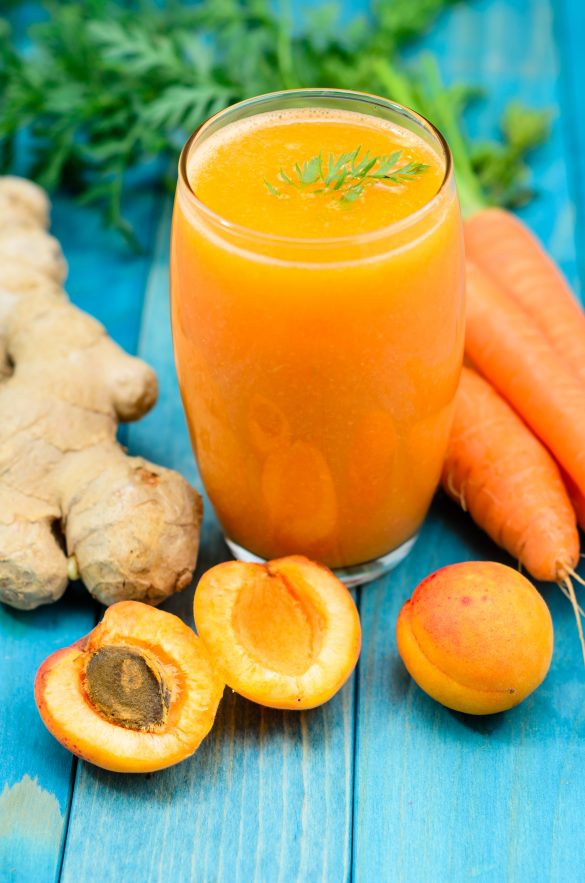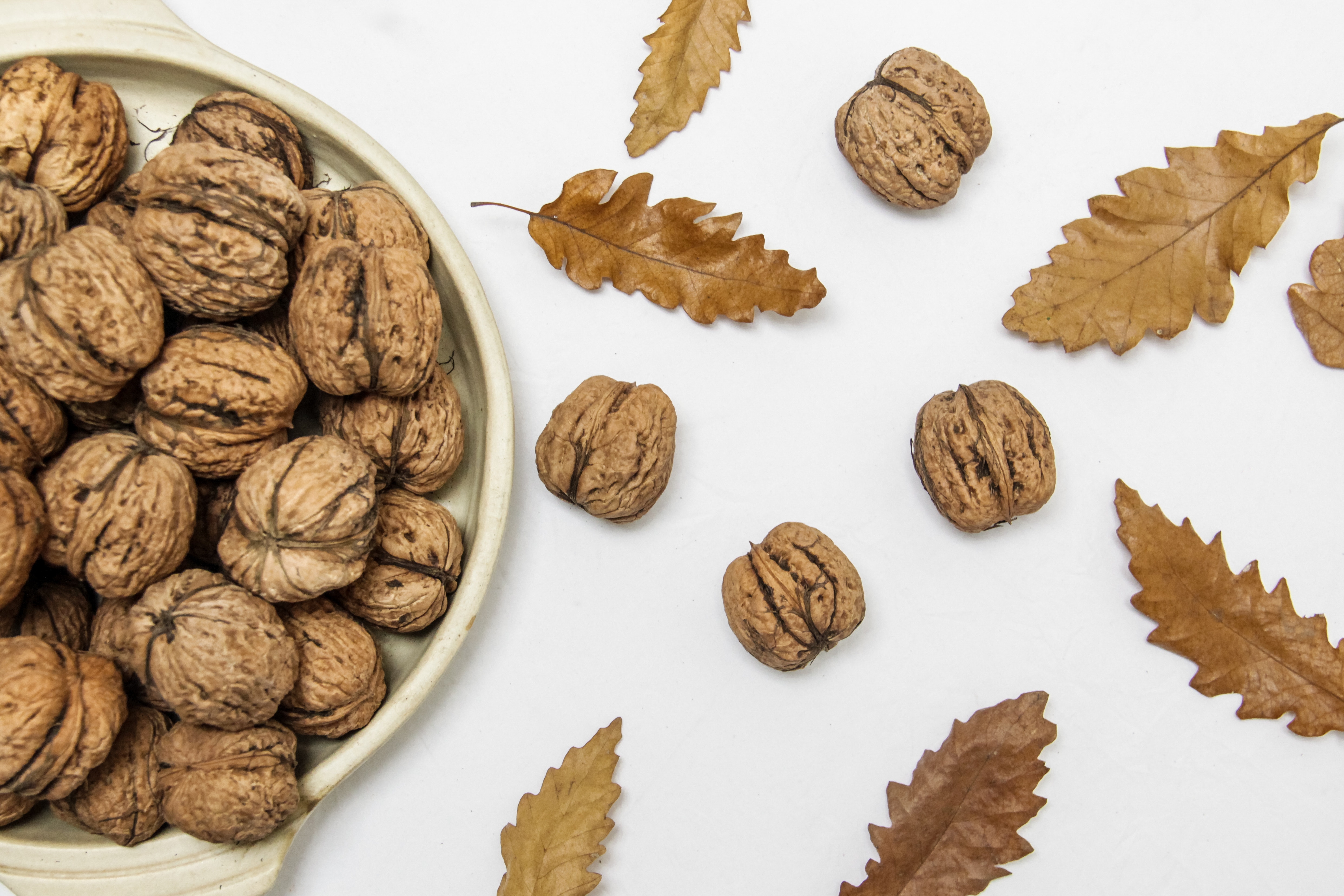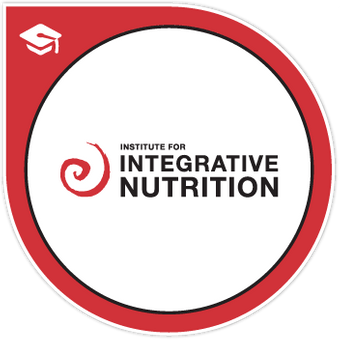Dear everyone!
There is probably no question about the overall health benefits offered by plant foods:
- Modern science shows us their power over our physical well-being which is represented in the recommendations of the worldwide big nutritional institutes.
- People transitioning into a vegan lifestyle usually talk about increased energy levels, better digestion, healthier skin, weight loss, but also about mental clarity, the loss of “brain fog” and a rather open mind.
- Although the ancient tradition Ayurveda does not exclude any type of food, it is not “recommended” consuming meat unless necessary to sustain your life (Ketabi, 2017). So, Ayurveda focuses on a whole food, plant-based nutrition. This is reflected in Indian’s population: the country is ranked top in the world of the total population being vegetarians and vegans. Good to know: Vegetarianism in India is associated with lacto-vegetarianism, which means people exclude eggs beside meat and fish from their diet.
- Spiritual masters consider a plant-based diet as the precursor for meditation and the internal development because you do not only take in coarse-material parts but also subtle energy. Plant foods, especially in their natural whole state, contain different types of energy than animal products do.
Putting it in a nutshell: My own experiences and what I’ve learned from teachers, science and other companions altogether confirm the transformative power of plant foods. As for today, we want to focus on the connection between food and our mind:
- What is it doing with our brain?
- Are there certain types of foods which may raise our mental health?
- And what does Ayurveda say about nutrition and the mind?
Sounds interesting? – Let’s get right into it!
~ Nutrition and brain ~
Whatever you put into your mouth, it will influence every single area of your body: not only your digestive tract, your metabolism, and cardiovascular system but also your brain. When it comes to studying the human’s brain, we are probably all aware of the fact that science has its limitations. In fact, we can say that the brain is one of the most mysterious biological systems. As not only intelligence but also our emotions and (sub-)consciousness are related to this organ, we are entering the subtle energetic field. And this area is not acknowledged by western scientists yet. However, there is proved science which shows the effects of nutrition on brain function.
“The act of nutrition has been proven in research
to have a direct correlation with the improvement of mental health.”
(Eva Selhub)
Studies show that people following a vegetarian or vegan diet do have a rather stable emotional state, including depression, anxiety, fatigue, sense of well-being and daily functioning (Beezhold et al., 2010).
Speaking in terms of matters based on scientific research, these benefits may be due to a higher level of antioxidants. These are phytochemicals found exclusively in plants which protect our cells from damaging substances called free radicals; they enhance oxidative stress, inflammation, and cell damage. On the other hand, vegetarians show a decreased intake of glycotoxins produced in heat-processed foods, such as hamburgers, hot dogs, processed cheese, etc. These molecules cause an increase in oxidative stress and have been linked to common health issues in westerners, such as diabetes and cardiovascular diseases.
In short: When you take in nutritious food containing vitamins, minerals and especially antioxidants (phytochemicals) from plant sources, your body cells (including the brain) will be protected from oxidative stress and free radicals. If you don’t consume fresh whole plant foods, your body cells (plus brain) will be attacked by free radicals which may negatively impair your cognition and mentality.
~ The gut-brain connection ~
Eastern medicine, such as the Traditional Chinese Medicine, says that the key to health lies within the digestive tract. Ayurveda puts it into the statement “You are what you digest” what I personally believe is very truthfully said as our gut is lined a hundred millions of nerve cells. This gut-brain connection is already well-known in western science. These two organs communicate by neurotransmitters, they are connected by the Vagus Nerve. But also the microbiome plays an essential role in the gut-brain connection. This topic of digestive health and its attachment (not only) to our brain is a vast one that I will cover in a few specific upcoming articles. As for now, let’s have a look on which foods will influence our brain beneficially through the process of digestion.
 Have you heard of Serotonin before? Exactly, it is our mood boosting hormone. And did you know that Serotonin is predominantly (> 90 %) produced in the gut? By the way, it is also responsible for our sleep-waking-rhythm, for bone health, bowel movements and much more. Thus, our intestines are not only responsible for breaking down nutrients and bringing them into the bloodstream; but also for our emotional well-being. Having lower serotonin levels in the blood is rather associated with depression, anxiety, and insomnia. Serotonin is produced by an amino acid called Tryptophan. This protein building block is found in both animal and plant sources. However, research gives us hints that tryptophan from plant sources is more bioavailable for crossing the brain barrier where it needs to get through in order to be synthesized into Serotonin. Animal products contain a relatively small amount of Tryptophan compared to other amino acids, which compete with one another for access to the blood-brain barrier. Thus, although these products provide us with Tryptophan, it is not sufficiently available for our brain (Wurtman et al., 2003).
Have you heard of Serotonin before? Exactly, it is our mood boosting hormone. And did you know that Serotonin is predominantly (> 90 %) produced in the gut? By the way, it is also responsible for our sleep-waking-rhythm, for bone health, bowel movements and much more. Thus, our intestines are not only responsible for breaking down nutrients and bringing them into the bloodstream; but also for our emotional well-being. Having lower serotonin levels in the blood is rather associated with depression, anxiety, and insomnia. Serotonin is produced by an amino acid called Tryptophan. This protein building block is found in both animal and plant sources. However, research gives us hints that tryptophan from plant sources is more bioavailable for crossing the brain barrier where it needs to get through in order to be synthesized into Serotonin. Animal products contain a relatively small amount of Tryptophan compared to other amino acids, which compete with one another for access to the blood-brain barrier. Thus, although these products provide us with Tryptophan, it is not sufficiently available for our brain (Wurtman et al., 2003).
~ Are there health-promoting foods for the brain? ~
As you can guess: our brain is not a separated organ from the rest of our body. And we don’t eat one specific food for one specific type of tissue. However, having a closer look at its composition and biochemistry, there are a few nutrients and therefore food groups that are regarded as essential for our brain health.
- Omega-3-fatty acids: The brain is composed of these types of long chain unsaturated fatty acids in high quantities. Human studies have shown that Omega-3-fatty acids may increase beneficial gut bacteria and reduce mental disorders (Menni et al., 2017; Mocking et al., 2016). Good sources of these types of fats are flax seeds, chia seeds, hemp seeds, walnuts and microalgae oils from the species Schizochytrium.
- Vitamin B12: If you strictly adhere to a totally plant-based diet, you should always take care of your vitamin B12 source. According to the current scientific outcome, vitamin B12 is not sufficiently and bio-availably present in any plant food. Eating fortified foods and taking in supplements according to your blood levels is essential to avoid deficiency, which has been linked to psychosis, suicidal depression, and cognitive decline.
- Probiotics and prebiotics: may support your gut health and your brain at the same time. These good bacteria (probiotics), as well as the fuel for good bacterial growth (prebiotics), may also help decrease symptoms of anxiety, depression, anger, and hostility. This underlines the importance of a healthy gut for mental health. However, probiotic supplements should not always be consumed randomly. The gut does not profit from these “drugs” in all cases. Rather grab some prebiotic or probiotic foods, such as whole grains, nuts, seeds, fruits, and vegetables as well as fermented products (tempeh, sauerkraut, kimchi).
- B-vitamins: are found in whole grains (oats, barley, spelt, brown rice), pseudo grains (like quinoa), legumes and nuts. They comprise a group of eight water soluble vitamins and perform essential roles on a cellular level, especially in brain function. Sufficient intake of B-vitamins will keep your brain healthy.
- Phytochemicals, like antioxidants, flavonoids, etc. which are found in plant-based whole foods, will support and protect (not only) your brain cells in functioning properly. Meaning: the colorful variety of fruits and vegetables are your primary source of phytochemicals.
- Tryptophan: is the amino acid which gets converted into Serotonin. Good plant sources are potatoes, cashews, walnuts, soy, and amaranth.
On the other hand, we can count a few substances (food ingredients) which may have a potentially negative effect on your overall, but especially on your brain health:
your brain health:
- Artificial sweeteners: If you’re frequently consuming artificial sweeteners, like aspartame, it may increase the risk of depression or other mental disorders. Research gives us hints that artificial coloring in foods may enhance hyperactivity in children, inattentiveness, and impulsivity.
- Arachidonic acid, which is a type of fatty acid found in all animal products, produces inflammatory compounds that may also affect your brain. There’s a study which shows that people consuming less or even no arachidonic acid at all – meaning vegetarians and vegans – have shown significantly better scores on depression, anxiety and stress scale. Removing meat, fish, poultry and eggs from the diet improved seven mood scores in just 2 weeks (Beezhold et al., 2010).
- Glykotoxins are found primarily in chicken, pork, beef and fish. These substances have the potential to increase the risk of mental diseases, such as dementia and Alzheimer’s (Cai et al., 2014; Abate et al., 2017).
~ An Ayurvedic Perspective ~
I just want to give you a quick insight into the perspective from the Indian tradition of Ayurveda: What do this ancient medicine and holistic approach say about the impacts of food onto our mind?
![]() Ayurveda asserts that food does not only affect our physical body but that the mind is also directly influenced by what we put into our body as well as food preparation, taste, freshness, and appearance. Eventually, all of our senses are affected by the act of eating. Ayurveda recommends choosing fresh foods, a compatible combination and the use of herbs and spices. However, each food has a certain quality which might either bring us into a state of balance or cause some kind of imbalance. These qualities are classified into three categories, the so-called Gunas: universal attributes or qualities of consciousness. They do not only relate to food, but also to our overall state of consciousness and have a profound influence on the subtle body and the mind.
Ayurveda asserts that food does not only affect our physical body but that the mind is also directly influenced by what we put into our body as well as food preparation, taste, freshness, and appearance. Eventually, all of our senses are affected by the act of eating. Ayurveda recommends choosing fresh foods, a compatible combination and the use of herbs and spices. However, each food has a certain quality which might either bring us into a state of balance or cause some kind of imbalance. These qualities are classified into three categories, the so-called Gunas: universal attributes or qualities of consciousness. They do not only relate to food, but also to our overall state of consciousness and have a profound influence on the subtle body and the mind.
- Sattva stands for the qualities of equilibrium, clarity, light, intelligence, compassion, insight and wisdom. A sattvic diet includes light, fresh, high vibrational foods, such as fresh vegetables, fruits, rice, nuts or honey.
- Rajas includes the qualities of movement, passion, action, fantasy, jealousy, and ego. A rajasic diet is rich and stimulating, like garlic, coffee, wine, very spicy and hot as well as fried foods.
- Tamas represents inertia, darkness, heaviness, slowness, sleepiness, depressiveness, decay, ignorance, laziness and greed. Tamasic foods are for example meat, left-overs, frozen and microwaved food, onions, and mushrooms.
Ayurveda always strives to boost Sattva, because eating these foods in the right quantity will balance all three doshas, bring mental harmony into your being and arise conscious awareness. The Sattva quality is aligned with liberation and enlightenment, which is why yogis are following a sattvic (pure and clean) diet. When eaten Rajasic and Tamasic foods, we should be cautious about the quantity as these foods may cause an imbalance (Guha, 2006).
~ Conclusion: Nutrition and mental health ~
To conclude the findings of science on nutrition and mental health:
- Whole plant-based foods will protect you with antioxidants and other phytochemicals as well as vitamins and minerals from developing certain diseases. Plus, they will keep your gut microbiome healthy by providing fiber.
- Take care of your Vitamin B12 source if you’re sticking to a strict vegan diet.
- Consume healthy fat sources from flax seeds, walnuts, hemp seeds and/or oils on a regular basis.
- Reduce the amount of arachidonic acid and glykotoxins (found in animal products) in your diet.
- Exclude artificial sweeteners and colorings from your diet.
I’d love to hear your opinion and experience in nutrition and mentality.
Sending you lots of good vibes & brain clarity!
Namasté,
yours Isabel!
Literature
Abate G., Marziano M., Rungratanawanich W., Memo M., Uberti D. Nutrition and AGE-ing: Focusing on Alzheimer’s Disease. Oxid Med Cell Longev (2017).
Beezhold B.L., Johnston C.S., Daigle D.R. Vegetarian diets are associated with healthy mood states: a cross-sectional study in Seventh Day Adventist adults. Nutrition Journal (2010). Vol. 9:26.
Cai W., Uribarri J., Zhu L., Chen X. et al. Oral glycotoxins are a modifiable cause of dementia and the metabolic syndrome in mice and humans. Proc Natl Acad Sci U.S.A. (2014). Vol. 111(13): 4940-4945.
Guha A. Ayurvedic Concept of Food and Nutrition. University of Connecticut. School of Medicine (2006).
Ketabi S.R., Chopra D. Ayurveda (Idiot’s Guides). Alpha (2017), 1stedition.
Menni C., Zierer J., Pallister T., Jackson M.A., Long T., Mohney R.P., Steves C.J., Spector T.D., Valdes A.M. Omega-3 fatty acids correlate with gut microbiome diversity and production of N-carbamylglutamate in middle aged and elderly women. Sci Rep (2017). Vol. 7: 11079.
Mocking R.J.T., Harmsen I., Assies J., Koeter M.W.J., Ruhé H.G., Schene A.H. Meta-analysis and meta-regression of omega-3 polyunsaturated fatty acid supplementation for major depressive disorder. Trans Psychiatry (2016). Vol. 6(3): e756.
Wurtman R.J., Wurtman J.J., Regan M.M., McDermott J.M., Tsay R.H., Breu J.J. Effects of normal meals rich in carbohydrates or proteins on plasma tryptophan and tyrosine ratios. The American Journal of Clinical Nutrition (2003). Vol. 77(1): 128-132.
Pictures
Unsplash (www.unsplash.com)






Liebe Isabel, ich hab nun alle drei teile der Nutritionserie gelesen, die waren sehr spannend und sehr hilfreich. Ich informiere mich gern ueber die Effekte, die die Nahrungsmittel in unserem Koerper (Tempel) ausloesen. Ich und mein partner, wir leben seit ca. 5Jahren komplett plant-based, nehmen kein processed food zu uns…..Wir haben diesen Weg der Ernaehrung gefunden dank der Cina-Study. Das Buch hat unser Leben komplett umgekrempelt. Wir haben uns fuer diesen Wandel aus gesundheitlichen Gruenden entschieden. Damals wussten wir noch nicht dass sich ein ganzes Universum fuer uns oeffnet. Somit sind wir immer tiefer in die Materie eingedrungen was letztendlich zu einer Veraenderung unseres gesamten Lebensstiles gefuerhrt hat. Neben einer ausgewogenen Vegan-Diet (fast immer raw), moegen wir sehr die indisch orientalische Kueche, mit all ihren spices und warmen Gerichten die unser Inneres besonders in der kalten Jahreszeit gut fuellen und uns ein wohlbefinden geben. Leider muessen wir oft den B-12-Spiegel testen lassen. Vielleicht liegt es am Stress, der schlechten Luft (wir wohnen in Mailand), dem wenigen Gruen was die Stadt zu bieten hat. Wie nehmen daher taeglich unsere “Pille” . Aber auch den Vitamin D-spiegel lassen wir ein paar mal im Jahr kontrollieren. Auch wenn man in Italien wohnt, wo oft die Sonne scheint, bedeutet dies nicht dass dieser immer auf gesunden Level ist. Wir arbeiten viel in geschlossenen raeumen, benutzen die U-bahn um nach Haus zu kommen. Leider ist es unter der Woche dann oft spaet um noch etwas Sonnenlicht zu erhaschen. Aber wie gesagt, all diese kleinen Veraenderungen in der Ernaehrunh haben zu einem grossen Umbruch in unseren persoenlichen Interessen und Prioritaeten gefuehrt., so dass wir am Punkt angekommen sind unseren Lebenmittelpunkt in eine andere Region Europas zu verlegen die uns mehr Lebensqualitaet bietet, mehr Gruen, frische Luft und nette offene Menschen die auch an der Veraenderung des Lebensstiles interessiert sind um unseren Planeten auch fuer kommende Generationen zu erhaleten und das Leben auf unserer erde gerecheter zu machen fuer alle Menschen..
Danke fuer Deine Geduld meine Post zu lesen. Aber Dein Blog “spricht mir aus der Seele”. und ich bin sehr dankbar diesen gefunden zu haben
Ciao, Anja
Ciao, liebe Anja!
Ganz lieben Dank für deinen ausführlichen und wundervollen Kommentar, über den ich mich sehr gefreut habe! 🙂
Schön zu hören, dass du auch zur pflanzenbasierten und vor allem zu einer bewussten Ernährung gefunden hast, die dich in vielerlei Hinsicht unterstützt.
Ich denke, auf jedem Plätzchen der Welt gibt es gewisse Vorzüge aber auch den ein oder anderen potentiellen Nachteil. Da darf sich jeder das für einen selbst passendste und stimmigste aussuchen. Und “like-minded people” findet man auch überall. Offen und seinen Werten treu zu bleiben führt immer dazu, dass wir Gleichgesinnte anziehen… 🙂
Ich wünsche dir aus Herzen alles erdenklich Liebe und weiterhin viel Freude beim Lesen meiner Artikel.
Beste Grüße & Namasté,
deine Isabel!